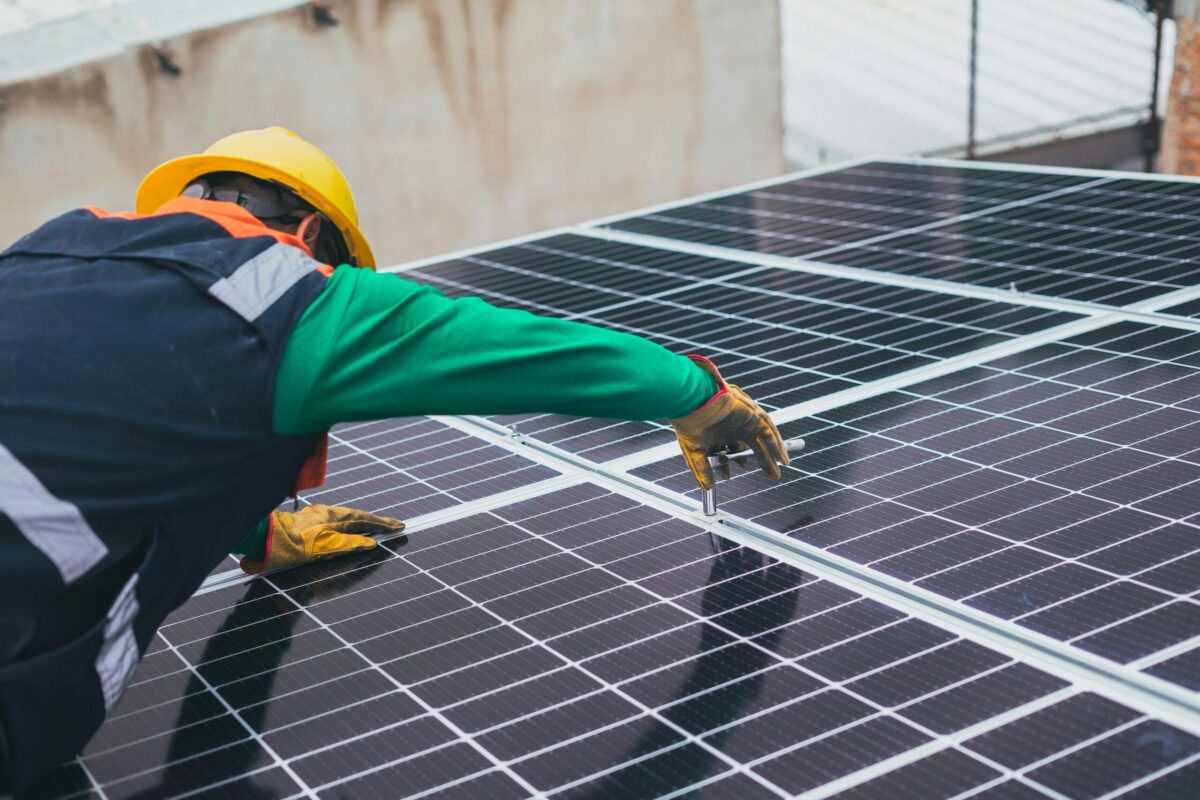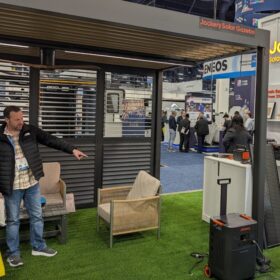Yesterday, Los Angeles Department of Water and Power (LADWP) Board of Commissioners voted unanimously to approve a power purchase agreement (PPA) with 8minute Solar Energy for a solar power plus energy storage facility located in Kern County, California. Now that the LADWP commission has approved the project, it will move to a vote with the Los Angeles City Council before it can be delivered to the Mayor’s desk for a final signature. The project’s guaranteed commercial operation date is December 31, 2023 – about 12 years after it was initially filed in early 2012.
The LADWP portion of the 25 year PPA is for 375 MWac of solar power coupled with 385.5 MW / 1,150 MWh of energy storage, while Glendale Water and Power took the other 25 MWac of solar plus 12.5 MW / 50 MWh of energy – totaling 400 MWac of solar plus plus 300 MW / 1.2 GWh of energy storage. LADWP will pay about $1.1 billion over the 25-year contract.

When pv magazine USA originally reported on the project, it was suggested that it would be up to 400 MWac of solar plus 200 MW / 800 MWh of energy storage – which would be priced, in aggregate, at 3.297¢/kWh. The final version of the project delivered will in fact be a 300 MW / 1.2 GWh energy storage installation – with an aggregate pricing of 3.962¢/kWh.
The project was originally offered at a record US price of 1.997¢/kWh for solar power alone, but the prices have increased with the energy storage adders – so we, technically, might no longer have a record low solar power price with this project. One might argue that the NV Energy contract 8minute signed for 2.376¢/kWh is still the cheapest “solar” in the USA, with this project being the cheapest “solar+storage” whose price has been revealed to date.
The image below, from a presentation by team members shows the project broken into Phase 1 and 2, each 200 MWac of solar and 100 MW / 400 MWh of energy storage. At the bottom of the image, the energy storage expansion is described – noting a 0.665¢/kWh adder, and that the two projects would meet 3.8% of the city’s renewable portfolio standard in 2025.

Kern County, California has many thousands of pages of PDFs describing the environmental aspects of the project. The project brought together 22 real property agreements – including many transmission easements, as well as land options and purchase agreements. The LADWP page hosts a 930 PDF that includes the contracts, and a lot of great information.
The total amount of electricity to be produced by the facility is still a bit fuzzy.
The 200 MWac Eland 2 project contract states the site is expected to deliver 856,094 MWh of electricity in the “initial stub year”, with 80% of that value guaranteed – but an option that 120% might be delivered (below image). As well, if there is “excess energy”, that is electricity that is greater than the 120% value, the customer is obligated to purchase such electricity – but at a discounted price of 1.154¢/kWh.
An LADWP internal presentation note suggested that the board ought expect some excess energy purchases if the technology that 8minute implements advances faster than it was projected to already advance.

CEO Tom Buttgenbach noted in a conversation with Sammy Roth of the Los Angeles Times that if the city were to increase the amount of energy storage from 200 MW to 300 MW, it would bring the AC capacity factor to 60%. This 60% capacity factor is a big step leading up toward potential 24/7 PV plants Buttgenbach suggests might come to pass within five years, and are already on the drawing board. A 60% capacity factor on one of the 200 MWac solar power plants would suggest just over 1,000,000 MWh delivered during the year – right about 115% of the project’s projected first year delivery volume of 856,094.
What the heck has ‘ol Tom B got up his sleeve to squeeze an extra almost 200,000 kWh out of his site?
As well, as a bonus for reading to the end of this article – in the May version of the contract, we found a preliminary draft one line diagram of the project. Enjoy!

This content is protected by copyright and may not be reused. If you want to cooperate with us and would like to reuse some of our content, please contact: editors@pv-magazine.com.








John, excellent coverage of an exciting development. What the heck does ‘ol Tom B have up his sleeve? You are the preeminent writer on the topic of outsized DC to AC ratios and alluded to bifaciality in your previous article so I’m guessing you asked that question slightly tongue in cheek. What I want to try is to arrive at a swag-y quantification of each factor that fits the specs given for the project. Here goes..
I think Tom is using nameplate capacity-sans bifacial boost- to arrive at his contractual supply of 1,712,188 MWh from a 400 MWac plant. After adjusting by this ratio-265/200- which I got from the last article I arrive at a DC solar farm sized at 780 MW. This supplies real close to the contractual supply amount. But he then says the package will achieve a 60% capacity factor which comes out to 2,102,400 MWh for 400MW. (yeah, I think you made a typo in that line.) Here he flips to including the bifacial kiss. The 1.7 number plus 23.5% comes right up to the 2.1 number. (‘0l Tom wrote in a provision that covers a 20% higher output that he knows darn well will happen, oh, about most of the time. And on those 16 hours per year that surpass even that, he guarantees sales at a reduced rate. Still better than curtailment. Smart guy) That sounds like a generous allowance but the satellite view of the area where this will be built is light colored sand which means darn good albedo. A chart in a Trina article- “Testing bifacial solar PV modules…” lists the bifacial output boost from various backgrounds including sand with tracker at 24.4%. Now for the final DC to AC ratio in this swag-y scenario: The 780MW becomes 963 with the flip side helping out for an inverter loading ratio of about 2.4. Welcome to the transition.
That was a joy to read Gary. This comment is now tweets. As well, fixed my typo – thank you!
Also, now I’m wondering, what will the effective price of electricity delivery from this plant be? Because, the excess volume is going to be at close to 1¢/kWh and it might represent a non-trivial volume.
Would love to be a fly on the wall listening to the PhDs working the levers on the financial models at 8minute.
This is a very interesting article and good news, but a few numbers appear to be reported incorrectly.
First, the total storage capacity with the additional battery option for each phase is 300 MW/1.2 GWh, as stated, so LA’s share of the storage can’t be 385 MW/1.15MWh. Based on the LADWP’s summary slide, the correct numbers for the storage system’s power capacity with LA getting 87.5% of Phase 1’s 150MW and 100% of Phase 2’s 150MW are 281.25MW for LA and 18.75MW for Glendale (12.75% of 150MW). The numbers you give are correct for energy storage capacity (1.05GWh for LA and 50MWh for Glendale).
Second, the final line of the LADWP’s summary appears to indicate that Phase 1 will meet 3.3% of LA’s 2025 RPS and Phase 2 will meet 3.8%, which is a total of 7.1% of the 2025 RPS, not 3.8%.
Again, thanks for the facing article and I’m sorry to nitpick, but I thought you might want to check these numbers.
Thanks on nit picking. Got to be accurate. Will edit once I sit down, just leaving a customer’s site.
Stupid Autocomplete. I meant “fascinating,” not “facing.”